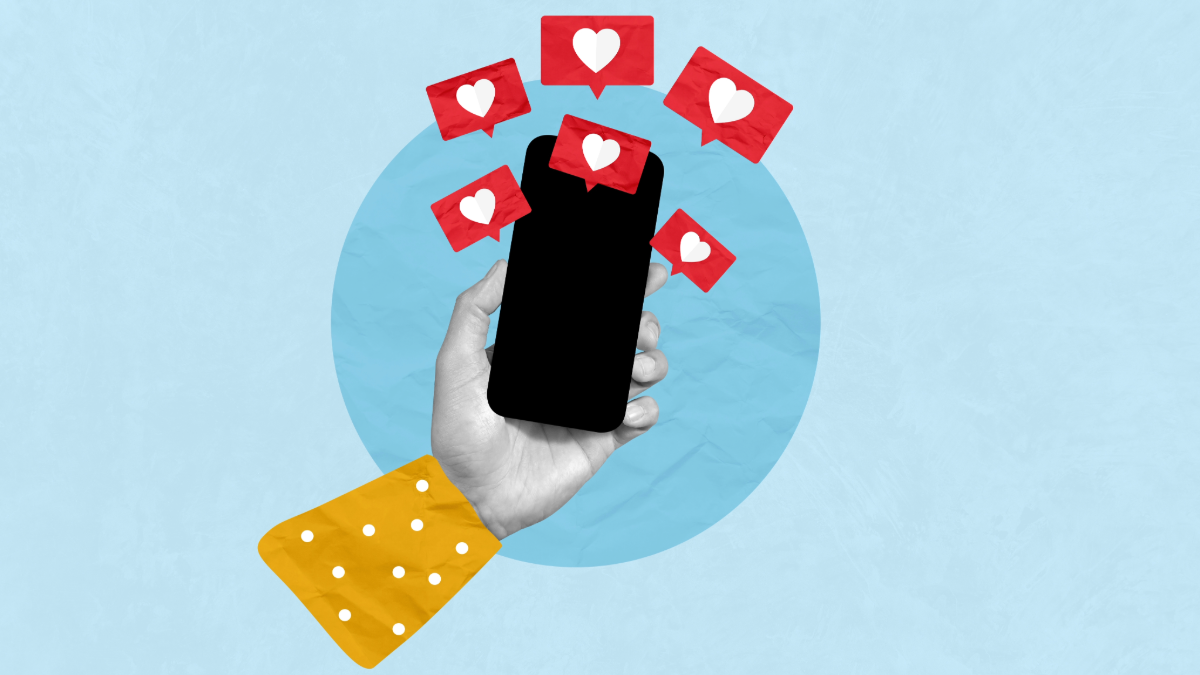Silicon Valley Values vs. Local Norms: How Apps Impact Indian Dating Experiences
Nitya Kuthiala / Jan 20, 2025Dating apps like Tinder, Bumble, or Hinge are marketed as modern technology solutions mediated by ‘neutral’ algorithms to ‘solve’ the user’s love life. Imbued with Silicon Valley values and incentives, the design and function of these apps reflect a set of beliefs among their creators about the role technology plays in society — even in intimate relationships.
However, the real world is a complex sociotechnical system that technology cannot solve seamlessly. On the contrary, using technology to ‘solve’ love and relationships — phenomena that are highly contextual and driven by sociocultural values — can sometimes create conflicts between embedded ‘Silicon Valley values’ and one’s local societal norms and values. This has different societal implications depending on who uses which technology and where.
As I researched dating and relationship cultures among Indians, I frequently heard individuals reflect on the difference between the ‘Western’ values of using dating apps and their own ‘Indian’ identity. While apps like Tinder, Bumble, and Hinge may embody ‘Western’ values (fast-paced, abundant, personalized), using these apps often encourages attitudes and behaviors that interviewees regard as in conflict with ‘Indian values.’ This disconnect points to the inherent weaknesses of global platforms and the necessity of understanding the potential sensitivities and forms of discrimination they may create.
Negotiating a conservative culture
‘Dating’ can be a tricky experience for young Indians. In India, conservative societal norms around mortality continue to punish those expressing sexual freedom and independence, like kissing in public, premarital sex, and inter-caste or inter-religious affairs. This even extends to commerce. Just this month, it was reported that the travel company OYO updated its policies to reflect that unmarried couples are not allowed to check into its properties.
Against this backdrop, acts that demonstrate ‘Westernization’ can be seen as acts of rebellion, ‘forgetting one’s values’, and might even invite violence. The experience of using Western dating apps in India creates an internalized ethos of conflicting local and global values like ‘being family oriented’ versus independent and individualistic and following a traditional, linear path versus being disruptive. It is no surprise, then, that many Indians who use dating apps choose to do so secretly while trying to balance the demands of their local contexts with the borderless, ‘global’ culture these apps allow access to. Trying to maintain this precarious balance often creates instances of friction and marginalization.
Many participants I spoke to mentioned using dating apps to “challenge” their values and ideas around love and intimacy. In the communities where they grew up, typical beliefs and values held that they had to find a singular life partner, get married, and have kids. This partner had to be someone “from the community” and of the families’ liking. Dating apps, on the other hand, allow access to a seemingly ‘endless supply’ of potential matches. Dating apps have been criticized for “commodifying love,” with people gamifying connection and love as they adopt “marketplace metaphors” when choosing partners. These beliefs are inherently capitalistic values that are embedded into American dating apps.
A foot in both worlds
Caught between these conflicting values, Indian users are forging hybrid identities. On one hand, these platforms allow users to explore relationships on their own terms, experiment with non-traditional forms of intimacy, and challenge societal taboos. On the other hand, many users remain tethered to societal expectations, often concealing their app usage from family and returning to traditional pathways when seeking long-term commitment.
While using dating apps and experiencing this abundance, users felt an internal pressure to assess their matches in alignment with their societal values, prioritizing aspects like caste, class, and religious beliefs. Many users projected specific cultural values onto the apps and their imagined communities, as they mentioned that these apps were full of “creeps and weirdos” or “people who were desperate.” On sharing further details of these profiles, these “creeps and weirdos” were almost always people from lower castes, classes, and minority religions — those with unrefined English, lower-quality images, less desirable aesthetics, and less premium branding. Such comments revealed who users believed did not belong on such Western, modern platforms.
Participants from lower castes often mentioned using ‘Western dating apps’ as they believed these spaces would be more progressive and ‘like the West.’ However, they quickly realized that one’s “preferences” on dating apps were inherently political — English speakers from the upper class and upper caste were always seen as more desirable and successful. Users reflected on their own identity and motivations through the apps they used but were also explicitly reminded of their embedded social hierarchies.
Another ‘global’ identity was one that most women faced. In a country where conservative gender norms are pervasive, women turn to dating apps as a way to assert individual control and autonomy in determining their future. However, in many instances, this newfound independence is short-lived, with participants mentioning dating app usage as a “phase” before they “give up” and concede to what their families want. Other women mentioned that patriarchy crept into Western dating apps as well, with men objectifying and sexualizing women and their bodies and openly discussing women as “conquests.” Every heterosexual woman I spoke with mentioned having unpleasant conversations with someone who was categorized as “entitled,” “creepy,” or “misogynistic.” For users from marginalized communities, such as lower castes or minority religions, the promise of connection often clashes with the reality of exclusion, as biases and stereotypes are reproduced in digital spaces.
This dual existence—modern and traditional, global and local—is exemplified in how users navigate these platforms. For instance, while many enjoy exploring the abundance of choices, they also report guilt and anxiety over defying societal norms that encourage linear trajectories of love and intimacy. This constant negotiation creates what can be described as a "glocal" identity—one that integrates global influences while adhering to local constraints.
It’s not that Indians are not enjoying and finding Western dating apps successful, but it signals the production of ‘hybrid’ identities while simultaneously creating new ones. This research showed how technology platforms make decisions with significant implications in situations laden with context-dependent values. Any algorithm designed will be constrained to the value system the designs choose to embed and will cause friction when deployed and used in different context-dependent situations. Technology platforms from the West continue to parrot Silicon Valley values whilst their diverse usage results in creating new values or repacking old values into digital spaces. For some users, these platforms offer a liberating escape from rigid societal norms. For others, they are a painful reminder that social hierarchies and barriers are recoded into digital spaces.
Maybe some things shouldn’t be global
The expansion of Western dating apps into India highlights the complex dynamics of cultural hybridization. While apps like Tinder, Bumble, and Hinge bring their ‘Silicon Valley values’ into different contexts, these must acknowledge the local, societal values of the contexts where they are being used. While these values may encourage different ways of navigating love and relationships, their potential to disrupt entrenched societal structures remains limited. The resulting hybrid model raises questions about whether Western dating platforms can successfully navigate these cultural nuances appropriately or whether this is even a problem that technology is equipped to fix.
The story of Western dating app usage in India is one of both disruption and continuity. While these platforms challenge traditional norms, they are simultaneously shaped by the very societal structures they seek to disrupt. My research shows how Indian users face internal conflicts between Silicon Valley’s dating app culture and their traditional Indian values, while marginalized groups continue to face discrimination despite technology’s promise of equality and freedom of choice. To be truly inclusive and effective, Western dating apps should develop policies that acknowledge local cultures around values and embedded social hierarchies rather than assuming their Western-centric approach will translate seamlessly across cultures. This might include creating more nuanced privacy controls, developing culturally sensitive matching algorithms that understand the nuances of local contexts, and implementing stronger protections against caste-based, gender, and religious discrimination.
Authors

